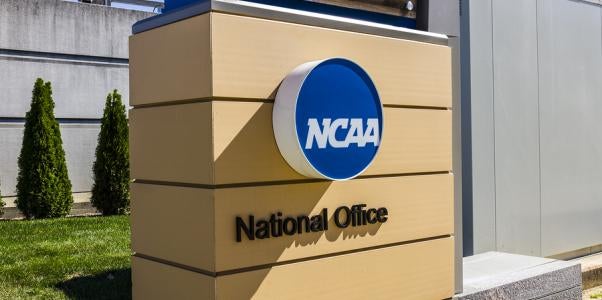In 2018, in response to a federal investigation into alleged corruption, the National Collegiate Athletic Association (NCAA) established the Commission on College Basketball to fully examine critical aspects of Division I men’s basketball.
Among its recommendations, the Commission said student-athletes should be permitted to declare for the NBA draft but maintain their college eligibility if not drafted. This rule modification would replace the draconian rule that required student-athletes to remove their names from consideration for the NBA draft within 10 days of participating in the NBA combine or lose their remaining NCAA eligibility.
The Commission also recommended that student-athletes be permitted to receive “meaningful assessments of their professional prospects earlier” with the assistance of NCAA-certified agents.
In line with the recommendations, in August 2018, the NCAA announced a series of rule changes allowing male student-athletes to declare for the draft then return to college basketball if not drafted, as well as allowing them to be represented by National Basketball Players Association (NBPA) and NCAA certified agents.
The process and criteria for NCAA agent certification was not yet established, therefore, NBPA-certified agents were permitted to represent these athletes in the 2019 draft. The NCAA noted that the agents were required to become NCAA-certified no later than August 1, 2020.
However, on August 5, 2019, the NCAA launched its Agent Certification System and issued a memo to NBPA-certified agents explaining that they must become NCAA-certified to represent male athletes who wish to maintain their college eligibility. Available only through September 30, 2019, the NCAA certification was in addition to the NBPA certification program and accordingly has its own requirements.
Initially, to be eligible to become an NCAA-certified agent, candidates were required to meet the following criteria:
-
Have a bachelor’s degree or are currently certified and in good standing with the NBPA;
-
Have NBPA certification for a minimum of three consecutive years;
-
Maintain professional liability insurance;
-
Complete the NCAA qualification exam; and
-
Pay the required fees ($250 application fee and $1,250 annual certification fee).
Following the announcement of these criteria, the NCAA faced immediate criticism, especially in relation to the first requirement — led by LeBron James and his reference to the NCAA rule requiring a bachelor’s degree for NCAA certification as the “Rich Paul Rule,” after his agent who does not have a bachelor’s degree. The NCAA amended its rule within a week, noting that it had been “made aware of several current agents who have appropriately represented former student-athletes in their professional quest and whom the National Basketball Players Association has granted waivers of its bachelor’s degree requirement.”
Although the bachelor’s degree requirements received most of the attention, agents also voiced concerns about requiring three years of NBPA certification as a basis for the NCAA certification. The NCAA did not make any amendments to this requirement and there is only one exception to the three-year NBPA certification requirement. The exception applies only to agents who represented a student-athlete in the 2019 draft who subsequently returned to college. They may continue to represent that same student-athlete, even if they have not been NBPA-certified for three years, so long as they meet all other requirements.




 i
i


